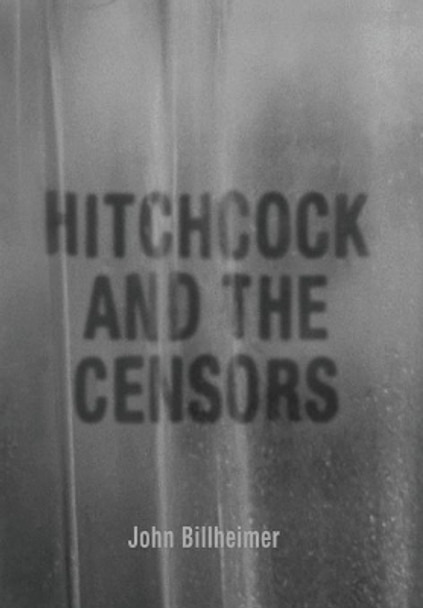Description
During their review of Hitchcock's films, the censors demanded an average of 22.5 changes, ranging from the mundane to the mind-boggling, on each of his American films. Code reviewers dictated the ending of Rebecca (1940), absolved Cary Grant of guilt in Suspicion (1941), edited Cole Porter's lyrics in Stage Fright (1950), decided which shades should be drawn in Rear Window (1954), and shortened the shower scene in Psycho (1960).
In Hitchcock and the Censors, author John Billheimer traces the forces that led to the Production Code and describes Hitchcock's interactions with code officials on a film-by-film basis as he fought to protect his creations, bargaining with code reviewers and sidestepping censorship to produce a lifetime of memorable films. Despite the often-arbitrary decisions of the code board, Hitchcock still managed to push the boundaries of sex and violence permitted in films by charming - and occasionally tricking - the censors and by swapping off bits of dialogue, plot points, and individual shots (some of which had been deliberately inserted as trading chips) to protect cherished scenes and images. By examining Hitchcock's priorities in dealing with the censors, this work highlights the director's theories of suspense as well as his magician-like touch when negotiating with code officials.
About the Author
John Billheimer is the author of two mystery series; one with West Virginia failure analyst Owen Allison, and the other featuring Ohio sportswriter Lloyd Keaton. He has taught courses in film noir, hard-boiled fiction on film, and the modern mystery in film and print at Stanford and Santa Clara Universities.
Awards
Winner of Edgar Allan Poe Awards (Critical/Biographical) 2020.
Book Information
ISBN 9780813177427
Author John Billheimer
Format Hardback
Page Count 384
Imprint The University Press of Kentucky
Publisher The University Press of Kentucky
Series Screen Classics
Details
Series: |
Screen Classics |
Imprint: |
The University Press of Kentucky |










